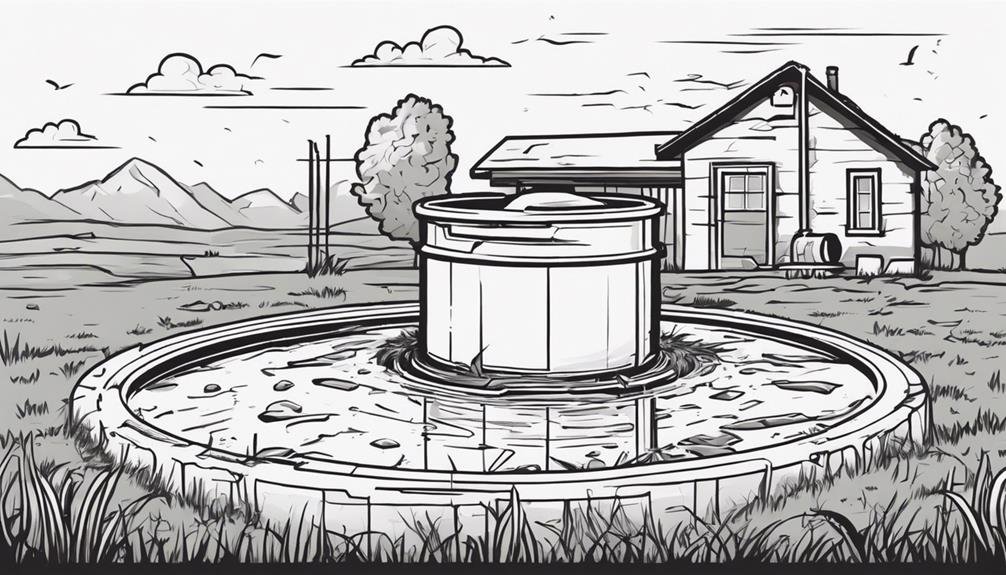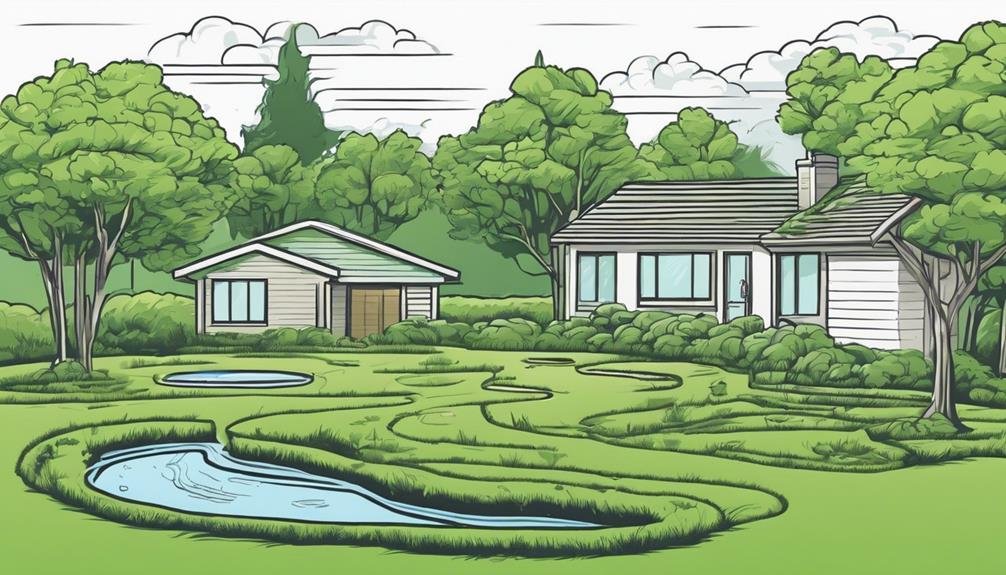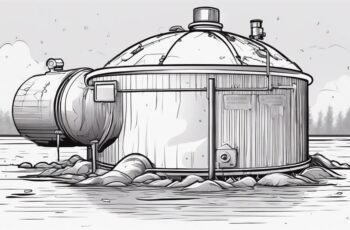If you've noticed a faint yet persistent scent lingering in your home or yard, it might not just be a passing odor. Strange odors could be a subtle clue to a more significant issue lurking beneath the surface.
But that's not all you should keep an eye out for when it comes to your septic system's health. Discover what other warning signs to be aware of before it's too late.
Key Takeaways
- Strange odors indicate a full septic tank, requiring immediate attention to prevent overflow and maintain system efficiency.
- Slow draining fixtures may signal septic issues like clogs or a full tank, necessitating professional inspection for resolution.
- Lush greenery over the drain field indicates potential saturation issues from excess wastewater, highlighting the need for prompt action.
- Gurgling sounds in pipes hint at septic system problems, emphasizing the importance of regular maintenance and professional repairs.
Strange Odors Inside or Outside

If you detect foul or sewage-like odors either inside your home or outside near your septic system, it could be a warning sign of a full septic system. Septic maintenance is crucial to prevent such issues. These odors occur due to the accumulation of waste and gases in the tank, which can escape through vents or cracks in the system. To address this, regular septic maintenance is essential. Ensure that your tank is pumped and inspected periodically to prevent overflows that cause these unpleasant odors.
Odor control is a significant aspect of septic system care. Installing carbon filters or ventilation systems can help mitigate any odors that may arise. Additionally, ensuring that there are no leaks or cracks in your system can also prevent these smells from permeating your home or yard. Remember, addressing odors promptly is crucial not only for your comfort but also for maintaining the efficiency and longevity of your septic system.
Slow Draining Fixtures
Detecting slow draining fixtures in your home can be an indicator of potential issues with your septic system. When sinks, showers, or toilets are slow to drain, it may signal a problem within your plumbing system or septic tank.
One common cause of slow draining fixtures is a buildup of solids in the pipes or a full septic tank. To address this, consider performing routine maintenance such as using enzyme-based cleaners to help break down organic matter in your pipes.
However, if the issue persists, it's advisable to seek a professional inspection to assess the health of your septic system thoroughly. A professional inspection can identify any underlying problems like clogs, blockages, or a full septic tank that may be causing the slow drainage.
Lush Greenery Over Drain Field

The presence of lush greenery over the drain field of your septic system can indicate potential issues that require attention. When the drain field becomes saturated with excess wastewater, the soil can struggle to absorb more liquid efficiently, leading to soil saturation and drainage issues. As a result, the excess water and waste may rise closer to the surface, promoting the growth of lush vegetation above the septic system.
Soil saturation occurs when the soil in the drain field reaches its capacity to hold water. This can happen due to a variety of reasons, such as a full septic tank, clogged drain lines, or a malfunctioning distribution box. When the soil is oversaturated, it compromises the system's ability to properly treat and dispose of the wastewater, potentially causing backups or surfacing of effluent.
If you notice an unusually vibrant patch of grass or plants above your drain field, it's crucial to address this issue promptly. Ignoring soil saturation and drainage problems can lead to more significant septic system failures, expensive repairs, and environmental contamination. Regular maintenance and timely interventions can help prevent these issues and keep your septic system functioning effectively.
Gurgling Sounds in Pipes
Gurgling sounds in pipes often indicate underlying issues within your septic system that require prompt investigation and resolution. Here are some key points to consider:
- Maintenance tips: Regular maintenance is crucial to prevent septic system problems. Make sure to schedule routine inspections and pumping to keep your system in good condition. Avoid flushing non-biodegradable items or chemicals down the drain, as they can cause clogs and damage the system.
- Repair options: If you hear gurgling sounds in your pipes, it could be a sign of a blockage or a full septic tank. In such cases, it's recommended to contact a professional septic system service provider to assess the situation. They can identify the root cause of the issue and recommend the necessary repairs or maintenance procedures to restore your system's functionality.
Conclusion
As you keep an eye out for warning signs of a full septic system, remember that these indicators are like red flags waving in the wind, alerting you to potential issues beneath the surface.
Don't ignore the strange odors, slow draining fixtures, lush greenery, or gurgling sounds. They're like the whispers of a hidden problem, urging you to take action before it's too late.
Stay vigilant and address any signs promptly to prevent a messy situation.

